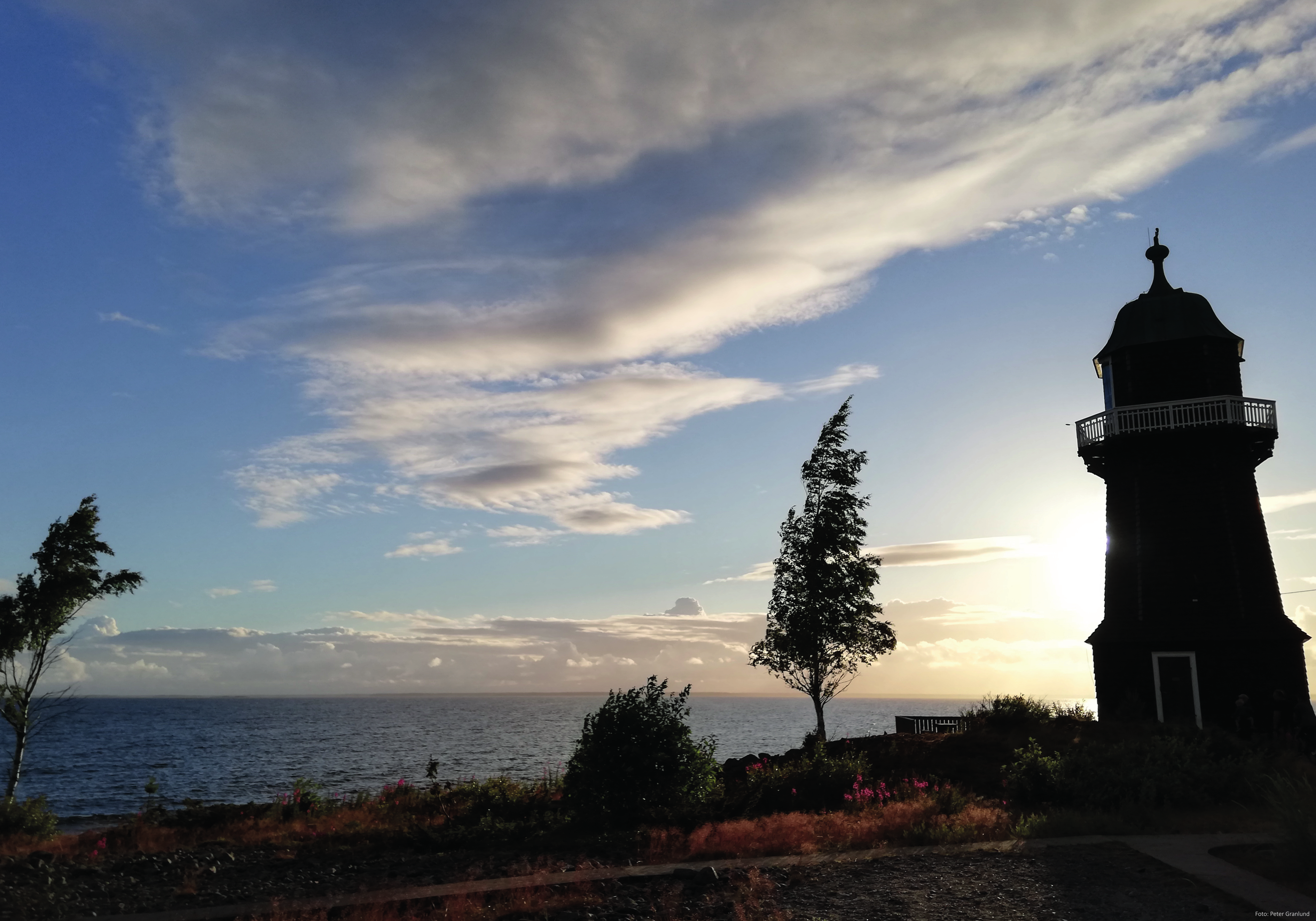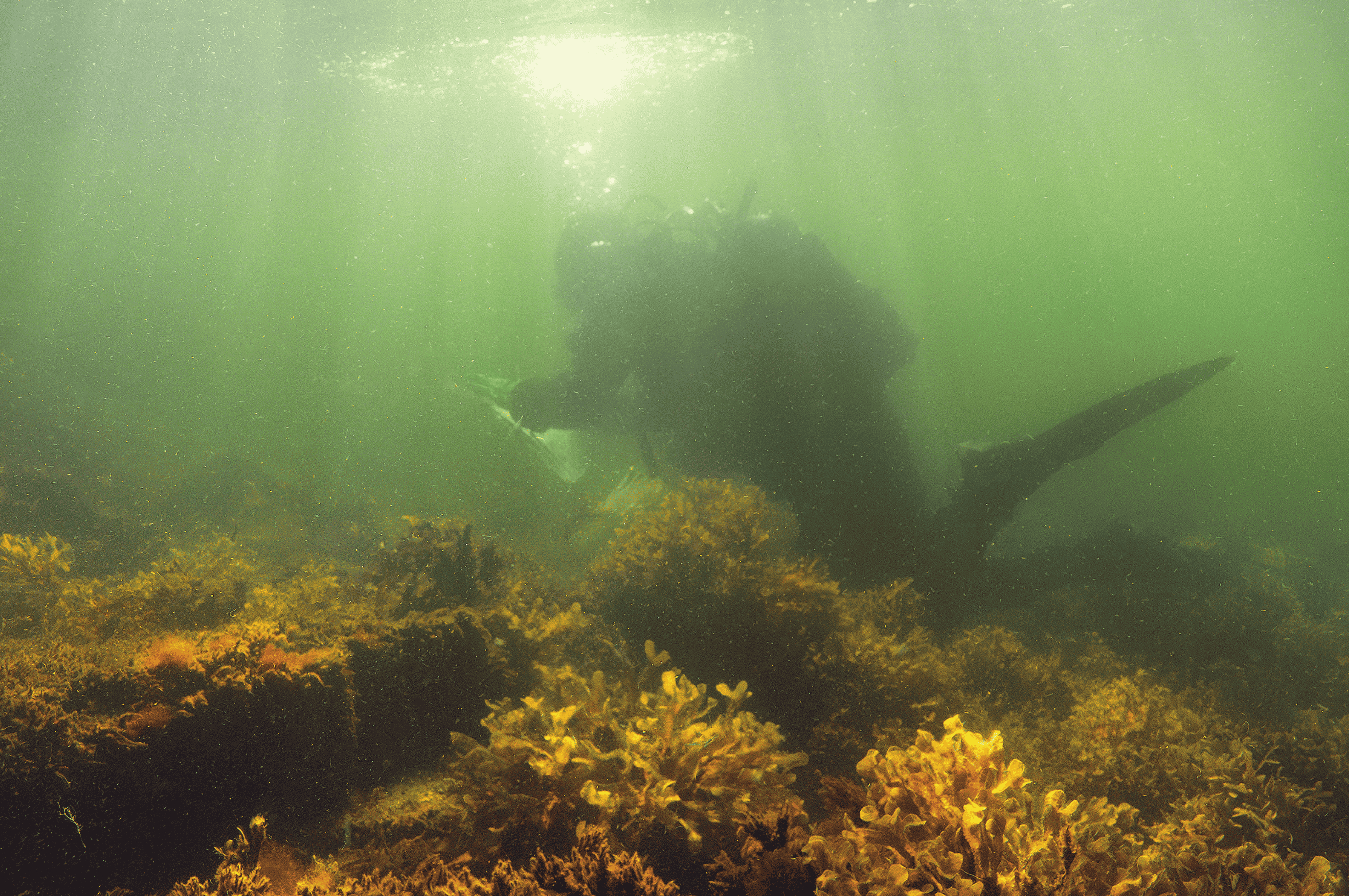Marine & aquatic photosynthesis
Overview
Umeå Marine Sciences Centre (also called UMF) will offer from 2027 a one-week international advanced course on marine and aquatic photosynthesis, with a focus on examples from the Arctic, sub-Arctic and extreme environments. This advanced course will review algal and aquatic macrophyte photosynthesis basics, plus measurement and data analysis of photosynthetic flux, FRRF and PAM fluorometry. This advanced course is suitable for postgraduate students, postdoctoral scholars and career professionals seeking to strengthen their knowledge and skills in marine and aquatic photosynthesis research.
Why come to Umeå Marine Sciences Centre?
Polar summer nights where it never gets dark, surrounded by wildflower meadows and pine forests - something few other marine stations can offer within easy reach of central Europe! And of course, you will get the opportunity to directly interact with our highly experienced instructors who between them have worked in marine environments from the equator to the poles! This exciting advanced course will include theoretical teaching and practical applications, using samples and data from phytoplankton, microphytobenthos, macroalgae and macrophytes.
Find out more about Umeå Marine Sciences Centre here: UMF website, including how our research answers cutting-edge environmental grand challenges: UMF research

Course Dates and location
The course will be held in-person (residential) at Umeå Marine Sciences Centre, Umeå University. Umeå Marine Sciences Centre is in the picturesque Swedish village of Norrbyn just 30 minutes south of Umeå. The course will run in the summer of 2027 - check back soon for confirmation of dates.
Course pre-requisites
Pre-requisites for the course are:
- The language of the course is English. If English is not your first language, you will need to provide evidence that you have either completed an undergraduate degree in English or meet the Umeå University English proficiency requirements detailed here: English requirements
- Have undertaken, or are currently undertaking, a PhD degree in biology, chemistry, environmental science or equivalent
- Research focus on marine and/or aquatic photosynthesis. This could for example be evidenced by published papers or thesis, or a letter of support from your current supervisor / Principal Investigator.
Detailed Course Content
Each day is divided into two sessions and includes both theoretical and practical aspects. Over 40 contact hours are provided during the week.
- Saturday/Sunday: Arrival. Welcome and team activities on Sunday afternoon (weather dependent, but might include a forest walk, BBQ, sauna or similar)
- Monday (08:00 – 17:00): Introduction to the course, photosynthetic basics, sample collection
- Tuesday (08:00 – 17:00): Bulk photosynthetic flux, PE curves, carbon-13 analysis
- Wednesday (08:00 – 17:00): FRRF, PAM fluorometry, field excursion
- Thursday (08:00 – 17:00): Multi-colour PAM fluorometry, photosynthesis-industry nexus
- Friday (08:00 – 12:00): BYOD (Bring your own data), or plan your next photosynthesis study, plus the opportunity for supported data analysis / experimental design with course instructors. Review of skills learned during the course
- Friday (12:00 to late): Departure
- Saturday: Additional departure if needed for travel schedules
Number of students
15 student limit, ensuring a high instructor to student ratio
Primary instructors
The primary instructors on the course are Drs Heidi Burdett, Léon Serre-Fredj and Jenny Ask. Heidi is an Associate Professor of Coastal Ecosystem Science and Sustainability, investigating the extremes of photosynthetic capability in the oceans. Léon is a Staff Scientist in Numerical Ecology, focusing on explaining spatio-temporal phytoplankton dynamics. Jenny is an Environmental Analyst specialising in the role of microphytobenthos on boreal aquatic ecology and biogeochemistry.
Course fee and details:
The course fee is estimated to be 8500 Swedish Kronor (SEK) (ca. 760 Euro; for up-to-date exchange rate see here: currency rate) This course fee includes the following:
- All taught components
- Shuttle from and back to Umeå airport or train station
- Introductory welcome activities
- Accommodation at the UMF hostel in Norrbyn. See more information about the hostel here
- Breakfast, lunch and dinner (from Saturday dinner to Saturday breakfast)
- Access to the local gym and Umeå Marine Sciences Centre bastu / sauna
Note: the fee does not include travel to/from Umeå and personal expenditure.
Bursaries
Umeå Marine Sciences Centre is pleased to offer two accommodation & food bursaries which will reduce the cost fee to 4500 SEK (ca. 400 Euros). If you would like to be considered for a bursary, please indicate this in your application. Priority will be given to applicants from Lower and Lower-Middle Income Countries, as defined by the World Bank: Countries list
Learning Outcome
Upon completing the course, the student should be able to plan their own photophysiology investigation, and perform multiple types of photosynthetic analyses on different sample types.
Accommodation
You will be housed in the Umeå Marine Sciences Centre Hostel which is just around the bay from Umeå Marine Sciences Centre. More details on the hostel can be found here: UMF hostel
Visa information
Many countries do not require a visa for a short visit to Sweden. However, please check requirements here: Immigration website
Terms and conditions
Advanced courses at Umeå Marine Sciences Centre are governed by the terms and conditions of Umeå University courses: UMF rule for tuitions fees
Note: We follow the Umeå University cancellation policy; for this course, if the minimum participation level of 5 students has not been reached by the standard application deadline then the course will be cancelled.
Course contact
The contact for this course is Dr Heidi Burdett.
Heidi’s contact details are here: Heidi’s page
Application deadline
Coming soon! If you want to be kept informed, please email umf@umu.se with the subject line “Marine & aquatic photosynthesis course”
How to apply
This course is coming soon and not currently open for applications (see above for details). Once open, you can apply to the course by submitting the below information.
Please send the following documents as a single PDF with the title format: “surname_forename_P2027”:
- A CV (up to 2 pages)
- A one-page personal statement including: 1) why you want to attend the course, 2) how the course will contribute to your professional development and 3) why you think an in-person over an online course is more suited to your needs. Please indicate if you would like to be considered for a course bursary
- Proof of English proficiency (see details above)
- Proof of photosynthetic investigation (see details above)
- Bachelors, Masters and PhD certificates and transcripts, as completed
Send the documents to: umf@umu.se
